10th of July 2024, Title for Roundtable: Critical Future of HE Organising: Problems, Possibilities and Pathways (Prof. Greg Bamber, Monash University, Australia; Prof. Martyna Sliwa, Durham University, UK; Prof. Rosemary Deem, Royal Holloway, University of London, UK; Prof. Richard Hall, De Montfort University, UK; Prof. Mats Alvesson, Lund University, Sweden; Prof. Jurgen Enders, University of Bath, UK; Prof. Simon Marginson, University of Oxford, UK; Dr. Lefteris Kretsos, Brunel University London, UK (Ex Greek, Syriza government minister); Prof. Monika Kostera, University of Warsaw, Poland
Recordings of the Session
Part-1:
The Baltic Sessions-10 July 2024-13.00-17.00 (UK time) In person or virtually - Roundtable_ 'Critical Future of HE Organising_ Problems, Possibilities and Pathway-20240710_130928-Meeting Recording.mp4
Part-2:
The Baltic Sessions-10 July 2024-13.00-17.00 (UK time) In person or virtually - Roundtable_ 'Critical Future of HE Organising_ Problems, Possibilities and Pathway-20240710_130928-Meeting Recording 1.mp4
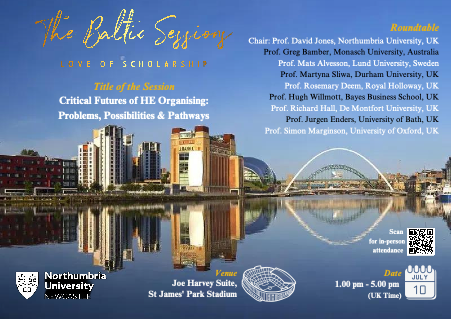
Chair: Prof. David Jones,
Northumbria University, UK
Welcome Speech: Prof. Robert MacIntosh, Pro Vice-Chancellor of Faculty of
Management & Law, Northumbria University, UK
Panel:
1. Prof. Greg Bamber, Monash University, Australia
2. Prof. Martyna Sliwa, Durham University, UK
3. Prof. Rosemary Deem, Royal Holloway, University of London, UK
4. Prof. Richard Hall, De Montfort University, UK
5. Prof. Mats Alvesson, Lund University, Sweden
6. Prof. Jurgen Enders, University of Bath, UK
7. Prof. Simon Marginson, University of Oxford, UK
8. Dr. Lefteris Kretsos, Brunel University London, UK (Ex Greek, Syriza
government minister)
9. Prof. Monika Kostera, University of Warsaw, Poland
Hi folks,
I have the
pleasure to chair what I hope you can see is the biggest and most ambitious
Baltic Session we have ever held (in the five years since the sessions began).
For this final Baltic Session of the semester, we have an illustrious panel of
academics who are all going to take on the task of tackling the title of the
session - ‘Critical Futures of HE Organising: Problems, Possibilities &
Pathways’. In fact, I see this as just a
beginning to a whole range of Baltic Sessions to explore the urgent need to explore
HE futures, in the context of changing socio- economic-political pressures.
Please do
check out the above list of the roundtable participants to give you just a
flavour of what to expect (their bios are below). An outline programme with
timing is also included below (including a coffee/tea break at 15.00-15.30 pm
UK time).
The panel
represent an eclectic and international mix of scholars (from Greece, UK,
Australia, Germany, Poland, and Sweden) who I am hoping will both move beyond
dystopic problem framing and simplistic, extrapolative organising solutions for
our sector. Many of these scholars (please do check out their scholarship and
policy making in this area) have deconstructed the space and place of our
universities- they have written extensively and provocatively about what they
view as both hopeless (more often than not around the neoliberal centrality of
corporate managerialism) and more nuanced hopeful HE futures. So, this
Baltic Session endeavours to begin to try to unpick hopeful, meaningful signs
and pathways (such as our solidarity and care for and with each other) from
what many see as a sector, at best which has lost its way and at worst has
impacted in a highly toxic way on peoples’ lives. Alienation, despair, mistrust,
and bullshit are the cries, amidst a complicit drive to never be quite
‘excellent’ enough in our continual aspiration for high flying HE careers.
The
following are my provocations to these scholars and to the Baltic audience
(connected to the title):
1. At this
crucial time, with many pivotal elections across the world, which HE policies
and practices could collectively be crafted to further equitable, inclusive and
sustainable HE futures that engage/resist these socio-political-economic
changes?
2. What is
the agentic role of academics, managers, students, administrators, policy
makers, politicians and the public in crafting a HE system we feel proud of?
3. What do
the student protests tell us about activism and university responses to freedom
of speech on campus?
4. Dare I
say (in Baltic Session fashion) how do we bring back love of critical
scholarship amidst such current challenges?
5. Do we
need to think about not only organising but disorganising?
6. In which
ways do we need to look beyond the borders of our institutions, disciplines,
career stages and nations to restore HE?
7. Do we
need to move from the current funding models and how can we collectively move
to a place which is not at the whim of wider political manoeuvring?
8. How do
we navigate our way from the current simplistic and insecure preoccupation with
metric management, audits and self-marketing, towards a more confident,
liberating and fair future?
9. Has slow
scholarship a central role in a hopeful future?
10. How do
we move beyond tokenistic agendas that represent only platitudes of care?
11. What
are the steps to get there?
12. Are we
rejecting strategic planning and control for a more emergent, organic way of
being?
13. To what
extent do senior academics and managers alike have a responsibility to use the
privilege of their roles much more fully to inspire and enact hope with more
marginalised actors?
14. To what
extent do our knowledge forums, meeting
spaces and places, such as journals and conferences, exacerbate our precarious
predicament?
I could go
on.... Lots of questions - hopefully our panel and audience can both offer some
tentative answers and through a friendly, critical dialogue come up with new
questions and challenges to different HE actors.
Welcome to
the Baltic Sessions- Rosemary, Mats, Monika, Richard, Greg, Martyna, Jurgen,
Simon & Lefteris - our 9 panelists. We also welcome Robert Macintosh who is
the Pro Vice Chancellor of the Faculty of Business and Law who will welcome
everyone.
All are welcome to listen and
engage in the discussions, either if you come over in person or to tune in
online. Our social media accounts’ links are at the bottom of this email. You
can follow our events from them.
As per usual I would urge early
career academics, doctoral students, more senior academics and senior managers
to attend the session (and for those retired but still more than active), not
only for the specific subject covered, but the chance to hear from scholars who
are endeavouring to make a difference to their own working lives, others and
the HE sectors more broadly.
Kind
Regards, David
Below are the key details and
agenda for the event:
Roundtable Outline:
1:00 PM - 3:00 PM: First Half (around 2 hours)
- Each of the speakers will deliver around
a 10-minute input.
- This will provide a comprehensive
overview from each speaker, setting the stage for an engaging discussion.
3:00 PM - 3:30 PM: Coffee Break (30 minutes)
- A 30-minute break to network
and/or refresh. 3:30 PM - 5:00 PM: Second Half (around 1.5 hours)
- Open conversation and Q&A with the
online & in-person audience.
- This interactive session will encourage in-depth discussion and
exchange of ideas.
Please find the bios of the speakers below:
David Jones is Professor of Sustainability & Management learning at
Northumbria University, in the UK. He is also a Visiting Professor in the
International Centre for Higher Education Management at the University of Bath.
He is an Associate Editor for the journal, Management Learning and is Founder
& Director of the Baltic Sessions: An interdisciplinary & collegiate
space for international academic critical engagement & provocation. He is
currently writing a book by Edward Elgar called Rethink’ing the Business School
to Restore Higher Education’.
Jürgen Enders is Professor of Higher Education Management at the School of
Management, University of Bath. His academic interest is focused on the study
of institutional change in the field of universities, and their role in society
and economy. He also addresses processes of internationalisation and
globalisation in higher education and undertakes cross-national comparative
research. Jürgen is a Fellow of the Academia Europaea and of the German Academe
of Science and Engineering, and Honorary Fellow of the Society for Research in
Higher Education. He is member of the editorial board of the book series
‘Higher Education Dynamics’ and the journal ‚Higher Education’. He has written
and (co)edited 14 books and published more than 150 articles in books and
journals including Organization Studies, Public Management, Public Management
Review, Studies in Higher Education, Higher Education and Scientometrics.
Elsevier and University of Stanford released data has recently named him among
the top 2% of most highly cited academics in the world in the social sciences.
Greg J Bamber is @ Monash Business School, and Research Theme
Lead: Future of Work, Monash Data Futures Institute, Monash University,
Australia. He is a Visiting Professor, Newcastle University. His research
covers several sectors including aviation, hospitals and universities, and
includes a focus on implications of new technologies. He has more than two
hundred academic publications including: “Human resourcemanagement in the age of
generative artificial intelligence:Perspectives and research
directions on ChatGPT,” Human
Resource Management Journal, and International& Comparative Employment
Relations: Global Crises& Institutional Responses, 7th edn. SAGE. He
collaborates with colleagues, private- and public-sector enterprises,
governments, unions and the International Labour Organization. He has served on
many editorial boards, as an arbitrator, and as a director on non-profit
boards. He has also served as president of several academies including the
International Federation of Scholarly Associations of Management. For more
details, see his Monash profile or LinkedIn:gregjbamber.
Professor Rosemary Deem (she/her)
OBE; PhD; FSRHE; FAcSocSci; Member, Academia Europaea
Orcid: 0000-0003-3081-7225
Google Scholar: https://scholar.google.co.uk/citations?user=L49Ge0gAAAAJ&hl=e
Emeritus Professor of Higher Education Management;
Chair of Trustees, Sociological Review Foundation;
Honorary Life Member, UK Council for Graduate Education;
Co-Editor, Higher Education (Springer);
Co-Convenor, Network 22 (Higher Education) European
Educational Research Association;
Dept of HRM and Organisational Studies, School of Business
and Management,
Royal Holloway, University of London
Egham, Surrey, TW20 0EX, UK
email: R.Deem@rhul.ac.uk, tel:
0044 7905335802
Richard Hall is Professor of Education and Technology at De Montfort
University, and the research and evaluation lead for Decolonising DMU. A UK
National Teaching Fellow, Richard writes about the political economy of higher
education. He is the author of The Hopeless University: Intellectual Work at
The End of The End of History (Mayfly Books, 2021), and The Alienated Academic:
The Struggle for Autonomy Inside the University (Palgrave Macmillan, 2018).
Richard is an independent visitor for a looked-after child, and a governor of
both the Leicester Primary Pupil Referral Unit and Leicester Partnership
School. He writes about life in higher education at richard-hall.org
Simon Marginson is Professor of Higher Education at the University of Oxford and
Joint Editor-in-Chief of Higher Education. He is also an Honorary Professor at
Tsinghua University, Professorial Associate of the University of Melbourne, a
Fellow of the British Academy, the Academy of Social Sciences in UK and of the
Society for Research into Higher Education, and a member of Academia Europaea.
He formerly worked at Monash and Melbourne universities in Australia and at UCL
Institute of Education in London, and from 2015-2024 he was Director of the
ESRC/RE Centre for Global Higher Education (CGHE). Simon’s research is focused
primarily on global, international and comparative higher education, global
science, higher education in East Asia, higher education funding, the contributions
of higher education to the public and common good, and higher education and
social inequality. His scholarship is widely published and cited (Google
h-index 85). Recent books include Assessing the contributions of higher
education, edited with Brendan Cantwell, Daria Platonova and Anna Smolentseva
(Edward Elgar, 2023).
Martyna Śliwa is Professor of Business Ethics and Organisation Studies, as well
as Associate Dean for Ethics, Responsibility and Sustainability at Durham
University Business School. Her research spans across a range of topics within
the fields of organisation studies and international management. She is
particularly interested in diversity, inclusivity and intersectionality in
organisations, and especially in the ways in which gender and linguistic
diversity influences people’s work experiences and careers, as well as organisational
power relations and hierarchies. Martyna also serves as Vice-Chair of the
British Academy of Management for Equality, Diversity, Inclusivity and Respect,
and as Co-Editor-in-Chief of Management Learning.
Mats Alvesson is Professor of Organizational Studies at Lund University, Sweden.
His current research projects focus on leadership, functional stupidity in
organizations and experiences of bureaucracy and managerial work in
universities. His research interests include critical theory, gender,
power, management of professional service (knowledge intensive) organizations,
leadership, identity, organizational image, organizational culture and
symbolism, qualitative methods and philosophy of science. His most recent books
include Re-imagining the Research Process: Conventional and Alternative
Metaphors. (Sage, 2021, with J. Sandberg), Return to Meaning (Oxford
University Press 2017), Reflexive Leadership (Sage, 2017, with Martin Blom and
Stefan Sveningsson),The Stupidity Paradox (Profile 2016, with André Spicer),
Managerial Lives (Cambridge univ Press 2016, with Stefan Sveningsson),The
Triumph of Emptiness (Oxford University Press 2013), Qualitative Research and
Theory Development (Sage 2011, with Dan Kärreman), Constructing Research
Questions. (Sage 2013, with J Sandberg) Interpreting Interviews (Sage 2011),
Metaphors We Lead By: Understanding leadership in the real world. (Routledge
2011, ed with André Spicer), Oxford Handbook of Critical Management Studies
(Oxford University Press, edited with Todd Bridgman and Hugh Willmott).
Understanding gender and organizations (Sage, 2009, 2nd ed with Yvonne
Billing), Reflexive methodology (Sage, 2009, 2nd ed, with Kaj Skoldberg),
Changing organizational culture (Routledge 2015 2nd ed, with Stefan
Sveningsson), and Knowledge work and knowledge-intensive firms (Oxford
University Press,2004).
Lefteris Kretsosis a Lecturer in Business and Management. Prior to joining Brunel
University London he was a Senior Lecturer in HRM at University of Greenwich,
Greenwich Business School, a Research Fellow at Coventry University, Coventry
Business School and a Lecturer in Robert Gordon University, Aberdeen Business
School. His achievements were acknowledged by City University of London through
the distinguished honor of an Honorary Senior Lectureship. His research
activity focused on the study of precarious work especially among young and
cultural workers. He is currently working in the intersection of political
economy and employment relations focusing on how AI, Public Policy and
Management interventions result in certain outcomes, processes and strategies.
Lefteris has been published in leading academic presses and in world-class
journals such as Work, Employment and Society, Work and Occupations, Industrial
Relations Journal, Industrial Law Journal. His research has also been funded by
various organisations and streams including the Economic and Social Research
Council (ESRC) and the European Research Council (ERC awards). In addition,
Lefteris has been on a range of editorial boards and committees, he has
proposed legislation and holds proven record in policy making and analysis in
government and intergovernmental organisations (for example European
Commission, ILO, OECD, Unesco). From March 2015 to July 2019 Lefteris served as
a Cabinet Minister of Alexis Tsipra's government and as General Secretary
responsible for Digital and Media Policy in Greece. During his tenure he
initiated the restructuring of public policy organisations and championed
policies for making Greece a global film friendly location.
Monika Kostera, Titular Professor in economics and the
humanities. She works as Professor in Sociology and Management at Warsaw
University, as well as Professor in Management at Warsaw University and
Södertörn University, Sweden, and is affiliated with LITEM, l'Université Évry
Val-d'Essonne, France. She has also been employed as professor and chair in the
UK, including at Durham University. She writes and publishes texts on
organization theory as well as poetry. She is Associate Editor at the Journal
of Management, Spirituality and Religion and at Culture and Organization, and C-Editor-in-Chief at Tamara Journal
for Critical Organization Inquiry. Her current research interests include
organizational imagination, disalienated work and organizational ethnography.
She is member of Erbacce Poets’ Cooperative. www.kostera.pl







 Please register on
Please register on 


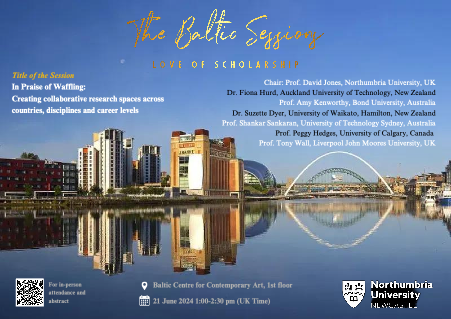
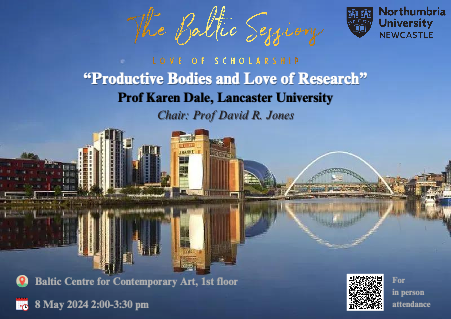

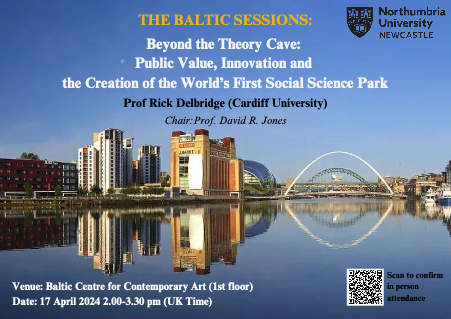
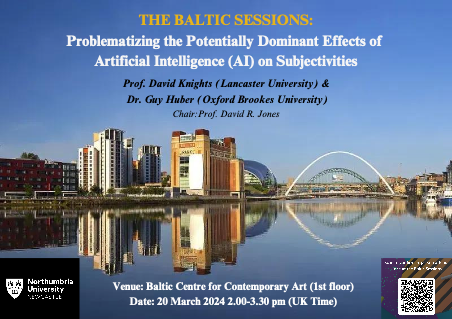
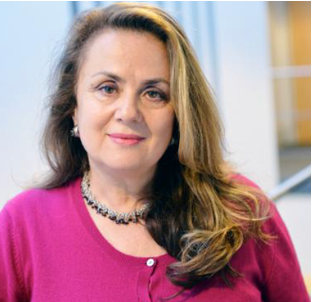 Professor Marianna Fotaki holds degrees in medicine, public health and health economics, and obtained her Ph.D. from the London School of Economics and Political Science in 2001. She has published over 100 articles on gender, inequalities, and the marketization of public services appearing in leading international journals. Her recent books include Gender and the Organization. Women at Work in the 21st Century (Routledge, 2017, co-authored with Nancy Harding, shortlisted for the EGOS Best Book Award in 2019), Diversity, Affect and Embodiment in Organizing (Palgrave 2019, co-edited with Alison Pullen), The Whistleblowing Guide: Speak-up Arrangements, Challenges and Best Practices (Wiley Finance, 2019 co-authored with Kate Kenny and Wim Vandekerckhove), Business Ethics, and Care in Organizations (Routledge 2020, co-edited with Gazi Islam and Anne Antoni) and Working Life and Gender Inequality. Intersectional Perspectives and the Spatial Practices of Peripheralization (Routledge 2021, co-edited with Angelika Sjöstedt and Katarina Giritli Nygren). Marianna was recently a Primary Investigator (2020-22) on a UKRI-funded COVID scheme project, ‘Understanding the financial impact of COVID-19 on the UK care home sector – implications for businesses and the workforce’.
Professor Marianna Fotaki holds degrees in medicine, public health and health economics, and obtained her Ph.D. from the London School of Economics and Political Science in 2001. She has published over 100 articles on gender, inequalities, and the marketization of public services appearing in leading international journals. Her recent books include Gender and the Organization. Women at Work in the 21st Century (Routledge, 2017, co-authored with Nancy Harding, shortlisted for the EGOS Best Book Award in 2019), Diversity, Affect and Embodiment in Organizing (Palgrave 2019, co-edited with Alison Pullen), The Whistleblowing Guide: Speak-up Arrangements, Challenges and Best Practices (Wiley Finance, 2019 co-authored with Kate Kenny and Wim Vandekerckhove), Business Ethics, and Care in Organizations (Routledge 2020, co-edited with Gazi Islam and Anne Antoni) and Working Life and Gender Inequality. Intersectional Perspectives and the Spatial Practices of Peripheralization (Routledge 2021, co-edited with Angelika Sjöstedt and Katarina Giritli Nygren). Marianna was recently a Primary Investigator (2020-22) on a UKRI-funded COVID scheme project, ‘Understanding the financial impact of COVID-19 on the UK care home sector – implications for businesses and the workforce’.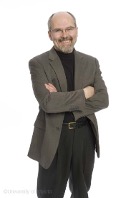 Biography:
Biography: